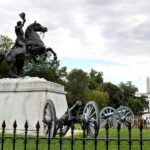Bay Area leaders and athletes united in grief and outrage following the tragic shooting death of Coach Beam, a beloved figure in the local sports community. As details of the incident emerged, voices from across the region condemned the violence, emphasizing that such senseless acts have no place in their neighborhoods. This collective mourning highlights both the profound impact Coach Beam had on those around him and the urgent call for action to address ongoing issues of gun violence in the Bay Area.
Community Leaders Speak Out on the Impact of Coach Beam’s Tragic Death
Prominent community leaders and local athletes gathered to express their deep sorrow and frustration following the shocking shooting death of Coach Beam, a beloved figure who dedicated decades to youth development and sports mentorship in the Bay Area. City Council member Maria Johnson condemned the violence, stating, “We cannot accept this level of senseless brutality in our neighborhoods. Coach Beam was more than just a coach; he was a beacon of hope for so many young people.” Several athletes who trained under Beam echoed the call for unity and increased safety measures, emphasizing that his legacy was one of resilience and empowerment. “He taught us life lessons on and off the field,” said former player Jamal Thompson. “Losing him like this leaves a void that no trophy or game can fill.”
Calls for action have intensified as community stakeholders seek pathways to honor Beam’s memory through preventive strategies and support programs. Below is a summary of initiatives proposed during recent discussions:
| Initiative | Purpose | Status |
|---|---|---|
| Youth Violence Prevention Workshops | Educate teens on conflict resolution | Planned |
| Community Safety Task Force | Increase police presence and community patrols | In Discussion |
| Scholarship Fund in Beam’s Name | Support aspiring athletes financially | Under Development |
- Grassroots organizations urged residents to participate actively in upcoming forums aimed at fostering dialogue and healing.
- Local sports clubs committed to hosting memorial games and events highlighting Coach Beam’s contributions.
- City officials promised to accelerate efforts to address gun violence and ensure safer environments for all citizens.
Athletes Reflect on Beam’s Legacy and Call for Greater Violence Prevention Efforts
In the wake of Coach Beam’s tragic shooting, local athletes have come forward not only to honor his enduring impact on the Bay Area sports community but also to emphasize the urgent need for comprehensive violence prevention initiatives. Many described Beam as a “pillar of mentorship” whose dedication extended beyond the field, shaping young athletes into confident, disciplined individuals. “His legacy isn’t just in wins or trophies,” noted regional track star Jasmine Lee, “it’s in how he empowered all of us to strive for better-both in sport and life.” Community leaders echoed these sentiments, pointing to the emotional toll of the loss while advocating for collaborative efforts to address the root causes of violence.
A unified call has emerged from this collective mourning: the necessity of proactive strategies to safeguard athletes and residents alike. Suggested measures encompass increased funding for youth programs, improved mental health resources, and community policing reforms. Below is a summary of proposed violence prevention priorities highlighted in recent Bay Area forums:
- Expanded Outreach: After-school mentorship and conflict resolution workshops
- Safe Zones: Enhanced security at athletic facilities and recreation centers
- Community Engagement: Partnerships between law enforcement and local organizations
- Resource Allocation: Increased funding for counseling and substance abuse programs
| Initiative | Target Group | Expected Outcome |
|---|---|---|
| Youth Mentorship | Teens & Young Athletes | Reduced involvement in violence |
| Mental Health Support | Community Members | Improved emotional resilience |
| Facility Safety Upgrades | Athletic Centers | Enhanced protection & awareness |
| Police-Community Initiatives | Local Neighborhoods | Stronger trust and communication |
Experts Recommend Strengthening Local Safety Measures to Protect Vulnerable Communities
In the wake of Coach Beam’s tragic shooting, community leaders and safety experts are urging a reevaluation of local protective strategies to better safeguard vulnerable neighborhoods. Emphasizing a comprehensive approach, they highlight the importance of collaboration between law enforcement, community organizations, and residents. “This incident is a stark reminder that reactive measures are no longer sufficient,” stated one public safety official. The recommended initiatives include enhanced neighborhood watch programs, improved street lighting, and increased accessibility to mental health resources, designed specifically to address root causes of violence in affected areas.
Experts also call for targeted investments in youth programs and sports facilities to provide safe spaces and constructive outlets for young people, crucial in neighborhoods grappling with socio-economic challenges. A recent analysis shows a correlation between increased community engagement and a measurable decrease in local crime rates:
| Community Initiative | Impact on Crime Reduction | Implementation Timeframe |
|---|---|---|
| Neighborhood Watch Programs | 30% decrease | 6 months |
| Improved Public Lighting | 25% decrease | 3 months |
| Youth Engagement Activities | 40% decrease | 1 year |
| Mental Health Support Access | 20% decrease | Ongoing |
The data reinforces calls for sustained funding and community-driven efforts to create environments where safety is a shared responsibility. With bold action and unified focus, local experts believe lasting change is possible to honor Coach Beam’s legacy and protect the most vulnerable populations from similar tragedies.
To Conclude
The tragic shooting of Coach Beam has left the Bay Area community grieving and searching for answers. As leaders and athletes unite in mourning, their shared message is clear: violence against those who dedicate their lives to mentoring youth is unacceptable. Moving forward, the hope remains that this heartbreaking loss will inspire renewed efforts to address gun violence and support for those who serve as pillars in their communities.









